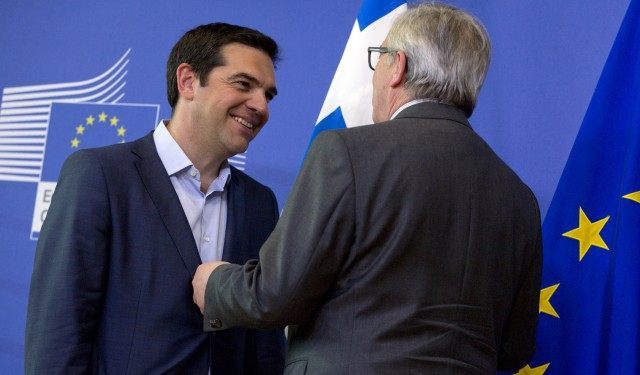Heavily indebted Greece has played the latest hand in the game of euro one-upmanship by refusing to honour the latest instalment in its debt repayment plans to the IMF.
The €300m (£218m) owed to the International Monetary Fund (IMF) is due today, but Greece intensified the standoff, becoming the first western nation in history to resort to bundling its repayments when Athens said it would pay the number of instalments spread across June in one transfer at the end of the month.
It means that by June 30, the Mediterranean country will owe the fund – which is supposed to be an emergency stopgap for short term balance of payments deficits – around £1.2 billion.
The bundling of repayments will further dent relationships between Athens and the Troika at a time when they are trying to establish a programme to stop the country from falling into bankruptcy while keeping it in the single currency union.
Initially the Greek Prime Minister Alexis Tsipras had suggested that today’s payment will be made, saying on Wednesday night “Don’t worry about that.” But later on IMF spokesman Gerry Rice said the payment was not expected, stating: “The Greek authorities have informed the Fund today that they plan to bundle the country’s four June payments into one, which is now due on 30 June.”
“Under an executive board decision adopted in the late 1970s, country members can ask to bundle together multiple principal payments falling due in a calendar month. The decision was intended to address the administrative difficulty of making multiple payments in a short period,” he added.
Tsipras, whose anti-austerity government is under pressure from Greek voters to get serious changes in the debt repayment schedule and forced economic reforms which came with the bail out money emerged from talks with European Commission President Jean-Claude Juncker and Eurogoup president Dijusselbloem in an ebullient mood.
But on returning to Greece he discovered sections of his own party in uproar over Brussels’ demands and finished the evening speaking to Angela Merkel and Francois Hollande via conference call. According to a Greek government official, he told the German and French leaders that the lenders’ proposal could not lead to a deal because it was not taking into account the progress made in Brussels. But as is now standard, they said that a deal could be reached soon.
Others were less confident about the deal or about Greece’s future remaining in the single currency.
UKIP financial spokesman Steven Woolfe MEP said: “Greece were never able to pay their debts and can never repay their debts. The only way they will is by leaving the eurozone and controlling their own economy and currency rates.
“The question now is whether the IMF will let Greece leave. No one believes they would rather keep the Greeks in poverty in perpetuity than admit the euro was always doomed to failure.”
And Conservative MEP Daniel Hannan said that leaving the EU and returning to the Drachma where they could devalue their currency was the country’s best option.
“I have been arguing since 2010 that Greece should default, decouple and devalue. Returning to the drachma won’t be easy – there are no easy options for a country in Greece’s situation – but it’ll be less damaging than the existing policy of permanent immiseration,” he wrote.

COMMENTS
Please let us know if you're having issues with commenting.